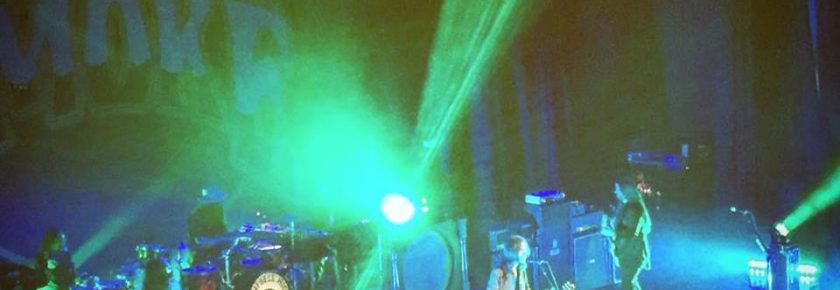We packed up an acoustic guitar and mandolin, stuffing their canvas cases with t-shirts and beanies to cushion their journey. It’s always risky, flying with acoustic instruments – but keep them in a soft case and try as they might, those airline employees can’t quite force you to surrender your baby to the crude handling of the luggage team. (“What was your name? Just so I know who to call if you make me check this and it’s a pile of matchsticks when we arrive.”)
Oh, but that’s the worst-case scenario. The matchsticks reference doesn’t really come up that often. For the most part, people are just curious about what you’ve got strapped to your back. That is, until you fly to Nashville, where a gleaming, cherry-red 1960s Gibson 335 in a crystalline display case greets you by baggage claim. Merle Travis is piped in over the loudspeakers. Patsy Cline smiles down from a giant billboard; next to her, Johnny Cash’s scathing gaze looks right through you. Welcome to Music City.
After landing we headed straight to Exit/In, a club that since its opening in 1971 “has taken its place among the nation’s most venerable, historic music venues.” Everyone from Jimmy Buffett to Etta James, from the Black Crowes to Death Cab for Cutie, has played there. We caught a raucous set by sister duo Larkin Poe, whose powerful voices and soaring guitars filled the room. For an encore, they invited up and coming guitarist Tyler Bryant and incredible slide player Robert Randolph (who had been standing next to us at the bar, unbeknownst to me!) to join them onstage. They then proceeded to bring the house down.
Even though we were new to town, and even though we had followed the impressive careers of some of these musicians but had never actually met them or heard them live, the whole night felt like an easygoing party amongst friends. After their killer encore, Robert Randolph stepped offstage and raised a glass with the crowd, which was mixed: all ages, some in cowboy hats, some in combat boots; young bucks barely of drinking age rubbing shoulders with old bikers who looked like they were born with beer in hand. It all felt very open and honest and straightforward: come as you are and enjoy the music. We’re glad you’re here.
The next day we headed to ASCAP (Association of Songwriters, Composers, and Publishers), the performance rights organization (PRO) which represents both me and Berna as music authors and publishers. I had heard that in the old days, the best thing was to meet a rep from your PRO, play your three best songs, and get their feedback. Maybe they’d tell you to take a hike, and keep your day job; maybe they’d pair you up with another writer.
In trying to schedule such an appointment, I had repeatedly heard the line that ASCAP represents over 750,000 writers and publishers these days, and their reps don’t have the bandwidth to meet with just any writer in their constituency. Fair enough. We showed up anyway.
While we were waiting in the lobby, the elevator opened and a tall, slim gentleman dressed all in black, with bright blue eyes, smiled. We smiled back, shook hands. He introduced himself – Ralph Murphy – and said if we waited he could meet with us. A few minutes later he ushered us into his office. The glass walls and modern furniture contrasted with the piles of books and old school stereo receiver. A large Bugs Bunny stuffed toy sat in one of his desk chairs, holding a guitar; Mickey Mouse lounged in another corner.
Ralph, Bugs, and Mickey all looked at us and waited. A little frazzled (he is the VP of ASCAP Nashville, after all…), I explained what we were there for and asked if we could play some songs for him. He nodded (Bugs and Mickey were stone faced), and from one phone we played a selection of our tunes while he read lyrics off another phone. He tapped his foot and listened intently, and for each song he had both general comments about the rules of writing hits and specific comments on the music and the message of the song. In 20 minutes I got more substantial, concrete feedback on my writing than I had in 15 years of gigging. I came away with some clear marching orders, all outlined neatly in the fresh copy of Ralph’s book which he generously gifted me. But perhaps most importantly, we came away inspired anew to work, reach, and refine our craft.
Despite the downpour outside, our footsteps were light. We walked by RCA Studios A and B – no big deal, just humble little studios where the likes of Dolly Parton, The Beach Boys, and B.B. King have recorded (to name a few) – on our way back to the car. We spent the rest of the day in vintage guitar shops playing precious, beautiful, completely unaffordable museum pieces before heading to The Ryman Auditorium, the famed hall that originally hosted the Grand Ole Opry.
The band was Blackberry Smoke, whose sound blends the liquid, dual guitars of the Allman Brothers with the soulful edge of the Black Crowes. Pure southern rock with catchy guitar riffs and a tight rhythm section, punctuated by interjections from the guest pedal steel player. As has been happening to me a lot lately, this music at once brought me back & pitched me forward. The familiarity of the song forms, the harmonies, and even the bands’ flowing locks (a-la-Gregg and Duane) were comforting, and felt like home; but the songs’ insights and delivery were very much of the current moment.
My favorite song of their set was one I have come to call “Itty Bitty Town”(though the song is actually called “One Horse Town” and the lyrics talk about a “little bitty town”, not an itty bitty one… remember the “creative” song lyrics you’d come with as a kid, based on what you thought you were hearing on the radio?). Contrasting nostalgia and loyalty to family and home with ambitions of something bigger, “One Horse Town” illustrates a conflict that’s all too familiar to the artists and dreamers of small town America. And it’s just as true today as it would have been over a century ago (when leaving town actually did require you to saddle up your pony).
This was the kind of timeless story and detail that Ralph (and Bugs and Mickey) were pushing us towards – something specific yet relatable, unique yet universal. To see and hear such a stunning example of this kind of writing live, so soon after our meeting with him, seemed uncanny… or at the very least, serendipitous. But really, that’s just living in Nashville. The place is simply saturated with music – good music – and everywhere you turn, musicians are reaching back and looking forward, honing their craft, their ears and hearts open. It was all we could do to soak it in for the brief window we walked those streets, tucked into the curves of the swelling Cumberland River, whose singing currents blended with the twang of the honky tonks and drifted up, up, up over the valley, fading into the stars.

